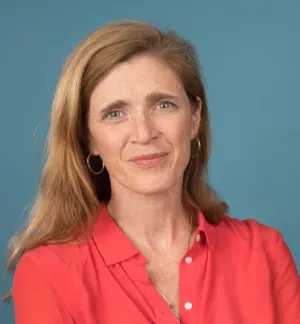
On behalf of the main co-sponsors – Afghanistan, Argentina, Australia, Austria, Belgium, Brazil, Bulgaria, Chile, Estonia, Finland, France, Georgia, Germany, Ghana, Greece, Japan, Liberia, Lithuania, Panama, Sweden, Switzerland, and Tunisia – the United States has the honor of introducing the decision to grant consultative status to the nongovernmental organization the Committee to Protect Journalists.
Another 18 countries have asked to co-sponsor the decision today: Canada, Colombia, Costa Rica, Croatia, Cyprus, the Czech Republic, Denmark, Guyana, Hungary, Italy, Ireland, Latvia, The Netherlands, Peru, Poland, Slovakia, Slovenia, and Spain.
The regional diversity and sheer number of co-sponsors speaks to the support from around the world for granting CPJ this status. We urge others to join them.
One of the founding fathers of the United States, Thomas Jefferson, wrote in 1823, “The only security of all is in a free press.” What Jefferson meant is that a free press is not only valuable in and of itself, but it is a critical tool for defending other rights. That is in part why the freedom was enshrined in the Universal Declaration of Human Rights, and it is why countries with a free and robust press tend to be more democratic, just, and peaceful than those without one.
From exposing corruption; to documenting human rights violations committed by soldiers and police; to giving a voice to people who are marginalized or at risk – such as girls who are pulled from school to marry or work, or refugees who undertake perilous journeys to escape violence – journalists show us the problems in our societies that we otherwise might not see. So it is not surprising that journalists often find themselves subject to harassment, imprisonment, and even attacks by those who feel threatened by their work – whether those are governments, organized crime groups, or terrorists.
The Committee to Protect Journalists – as its name implies – defends the basic right of journalists around the world to report the news without fear of reprisals, both helping individual journalists targeted for their work, and monitoring the broader treatment of the media by governments.
CPJ is an independent, impartial organization, with a long track record of reliable reporting – and I say that speaking for a government that has itself been criticized by the group. A wide range of governments regularly cite the organization’s research in this Council and beyond; so do UN officials and bodies, including the Secretary-General and multiple special rapporteurs. Yet the group has been denied accreditation by the NGO Committee for four years. During those four years, according to CPJ, at least 863 journalists have been imprisoned, 19 journalists have gone missing, and 304 journalists have been killed.
It is absolutely essential that the NGO Committee conduct a thorough review of organizations that apply for consultative status at the UN. And of course, there may be legitimate reasons to delay or deny status to certain organizations. Yet in recent years, as others have noted, we have seen the Committee systematically abuse its authority to delay the applications of qualified organizations. In 2013, when CPJ first applied, the applications of 399 NGOs were deferred; in 2014, there were 345 deferrals; in 2015, 376; and in 2016, 480. That is 1,600 deferrals of NGOs – many of them the same organizations, over and over again – just in the last four years. And as in the case of CPJ, oftentimes these organizations seem to be delayed simply because their work is critical of governments.
But here are just a few examples of other organizations whose applications before the NGO Committee are currently being deferred: Action Against Hunger, Peace Brigades International, Stitchting War Child, Women with Disabilities Australia, the Syrian American Medical Society, and the Youth Coalition for Sexual Health and Reproductive Rights.
The Committee designed to support NGO participation at the UN has become a tool for keeping respected NGOs out of the UN. The NGO Committee looks more and more like an anti-NGO Committee.
CPJ was denied accreditation by the NGO Committee by a vote of 10 Member States against to six in favor, with three countries abstaining. It is no wonder – 11 of the 19 countries on the NGO Committee are classified by Freedom House as “not free” for the press. CPJ is an organization we happen to know about – one with the capacity to make its unjust treatment known. Imagine how many more groups there are like them among the 480 NGOs whose applications were deferred by the NGO committee in 2016 alone. And imagine how many NGOs out there have given up and withdrawn their applications after year after year of being denied accreditation for no good reason. Honestly, this is outrageous. And it is a huge loss for the UN, which is deprived of the groups’ contributions.
The NGO Committee’s actions also undermine the UN’s credibility when we call on governments to respect the rights of civil society within their own countries.
Since 2012, more than 120 laws constraining freedoms of association or assembly have been proposed or enacted in 60 countries – part of a growing global crackdown on civil society. And it is no coincidence that many of the countries passing these laws are the same ones using the NGO Committee to block qualified organizations.
It is past time that we – and by we, I mean the members of this Council – find a way to get the NGO Committee to stop obstructing the organizations that it is supposed to empower.
Let me conclude. I mentioned earlier that, in the four years since CPJ first applied for UN accreditation, at least 304 journalists have been killed. That haunting number includes Pavel Sheremet, who was assassinated last Wednesday, July 20, by a car bomb in Kiev, Ukraine. Pavel was 44. He had endured a lifetime of persecution for his undaunted reporting. In 1997, he was imprisoned in his native Belarus for his coverage of political repression. In 2004, he was beaten severely by a group of thugs, suffering a serious concussion. In 2010, he was stripped of his Belarussian citizenship for his work. And he was relentlessly threatened.
Over the years, several of his close friends who were fellow journalists and activists were killed. He once said, “My personal experience is proof that this pressure is hard to withstand and dangerous.” At times, the pressure was so great that Pavel contemplated giving up.
And yet he persevered, in part because he did not face the attacks alone. When he was imprisoned, CPJ fought for his release. When he was beaten, CPJ condemned the attacks, demanded his protection, and called for the perpetrators to be punished.
Over a career marked by threats and reprisals, he could count on CPJ – just as his loved ones can count on CPJ now to relentlessly demand justice for his assassination. So many journalists around the world rely on the organization for this same support.
We introduce this resolution to grant the accreditation CPJ deserves.
And I thank you.
###
Power, Samantha. “Remarks by Ambassador Samantha Power at a Meeting of the United Nations Economic and Social Council on Granting UN Accreditation to the Committee to Protect Journalists.” July 25, 2016


